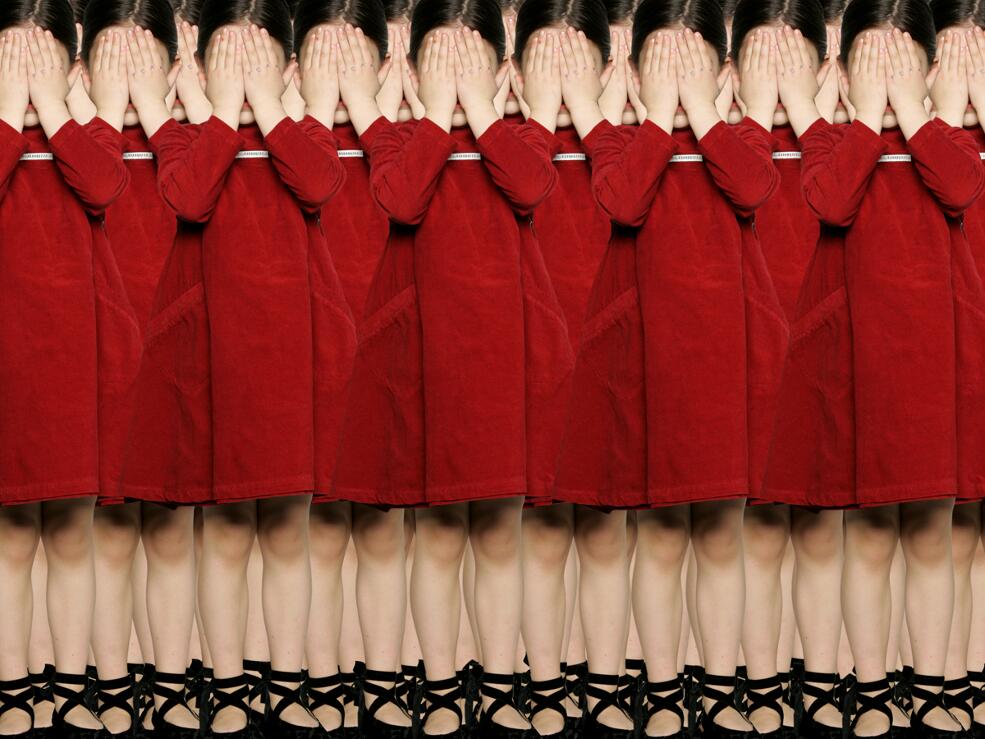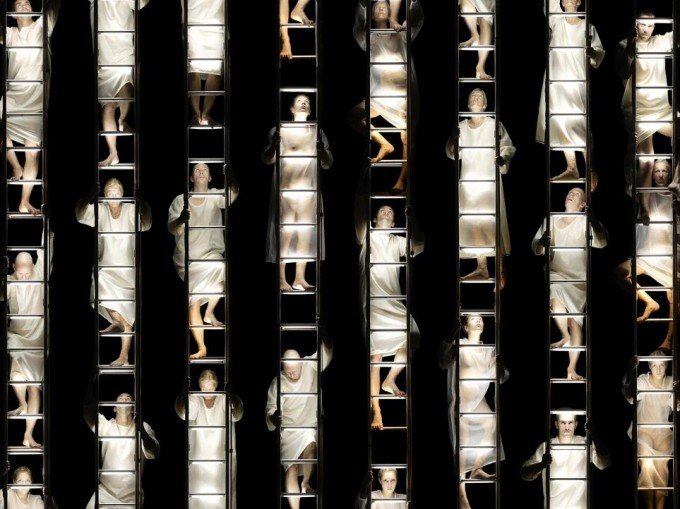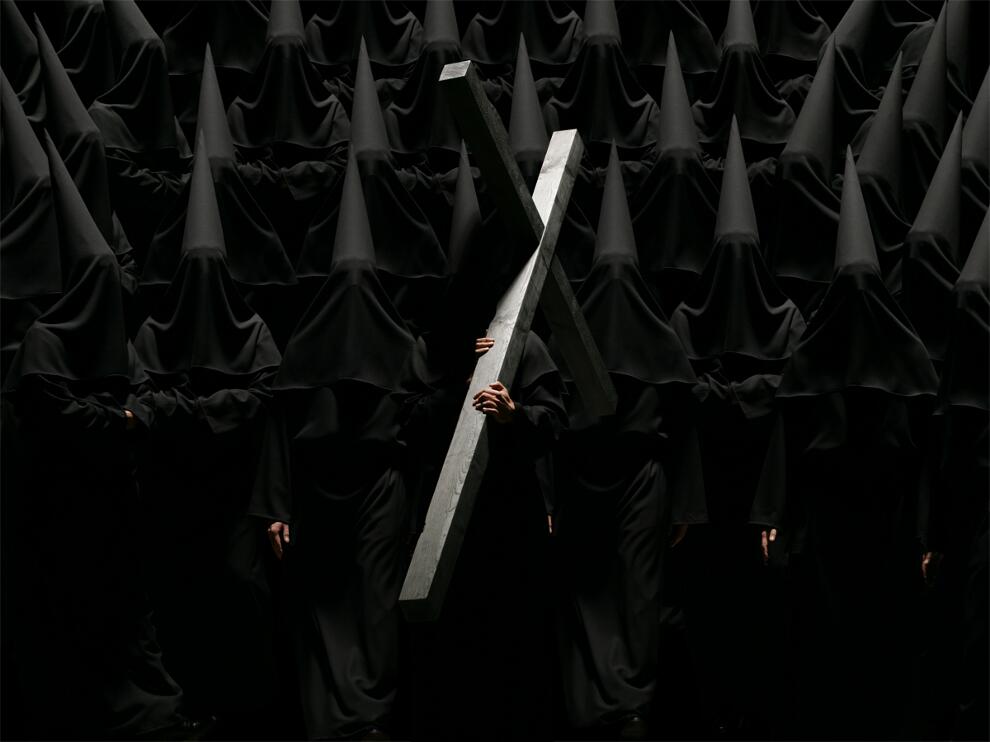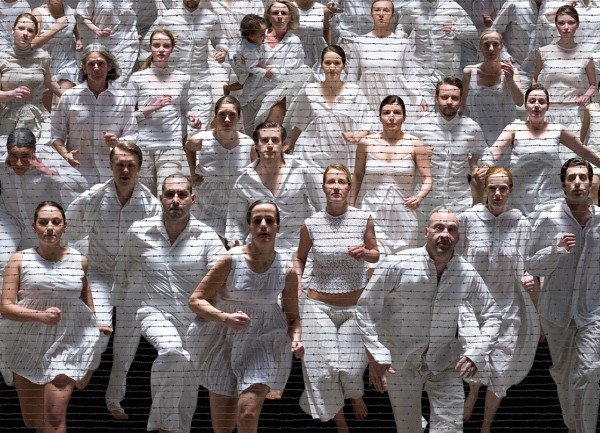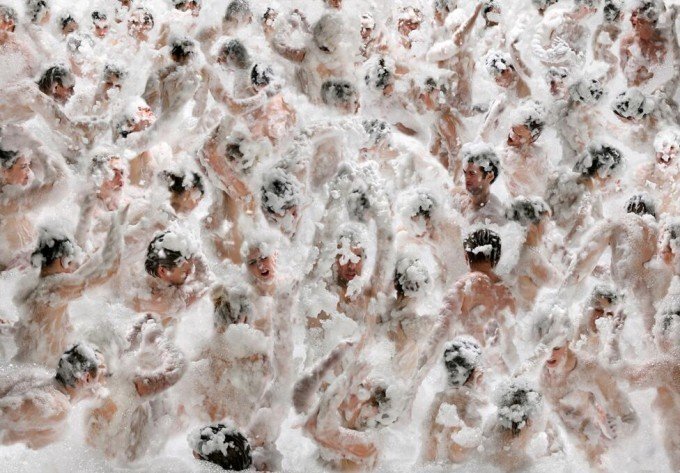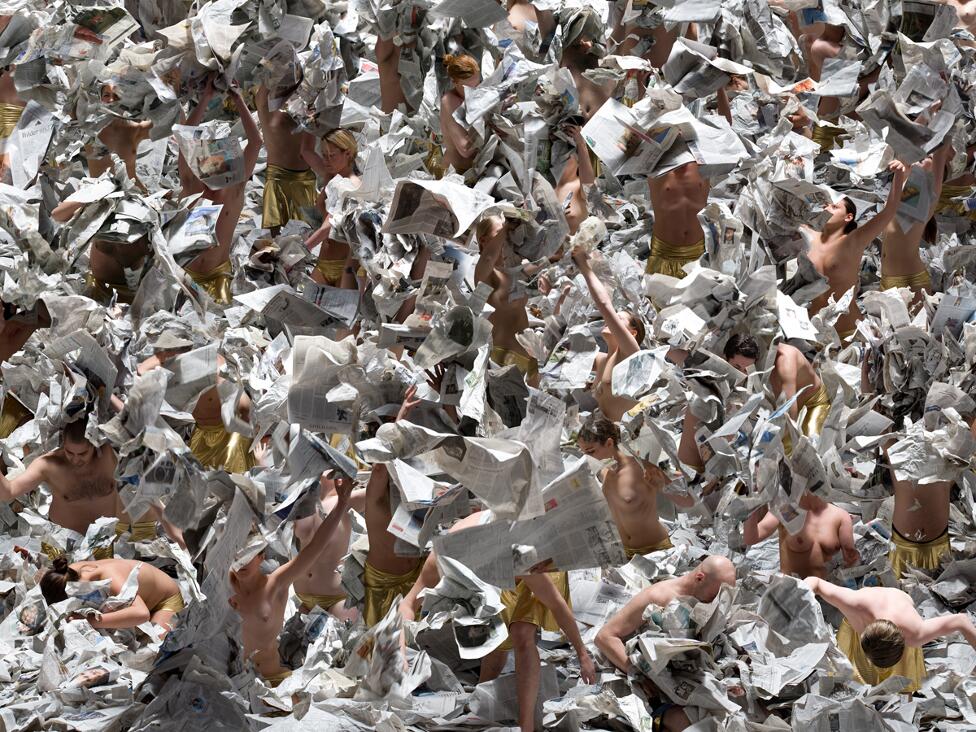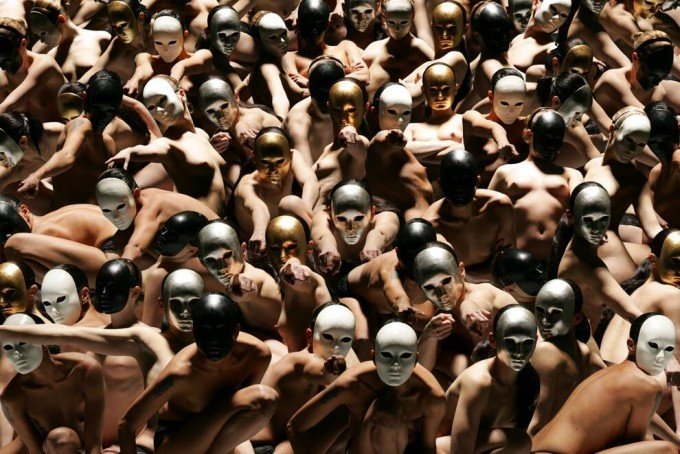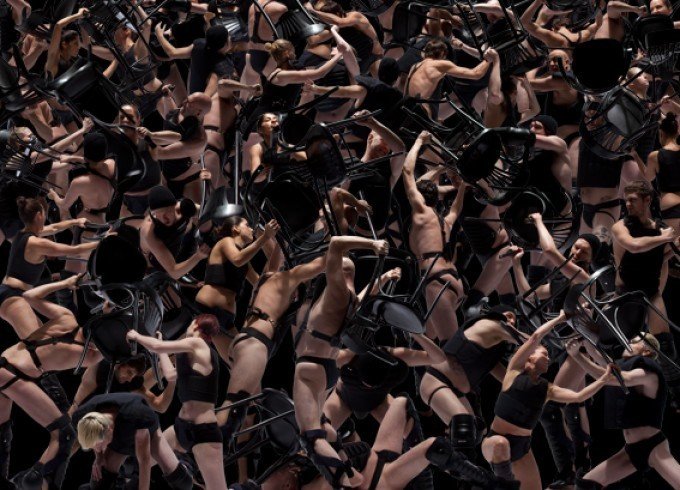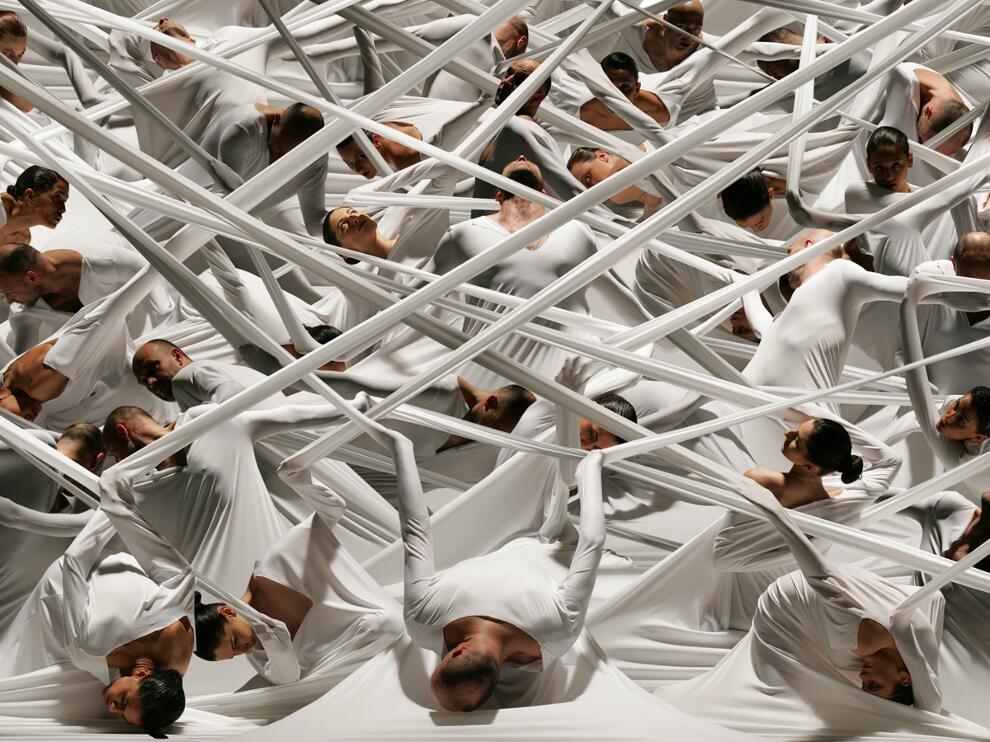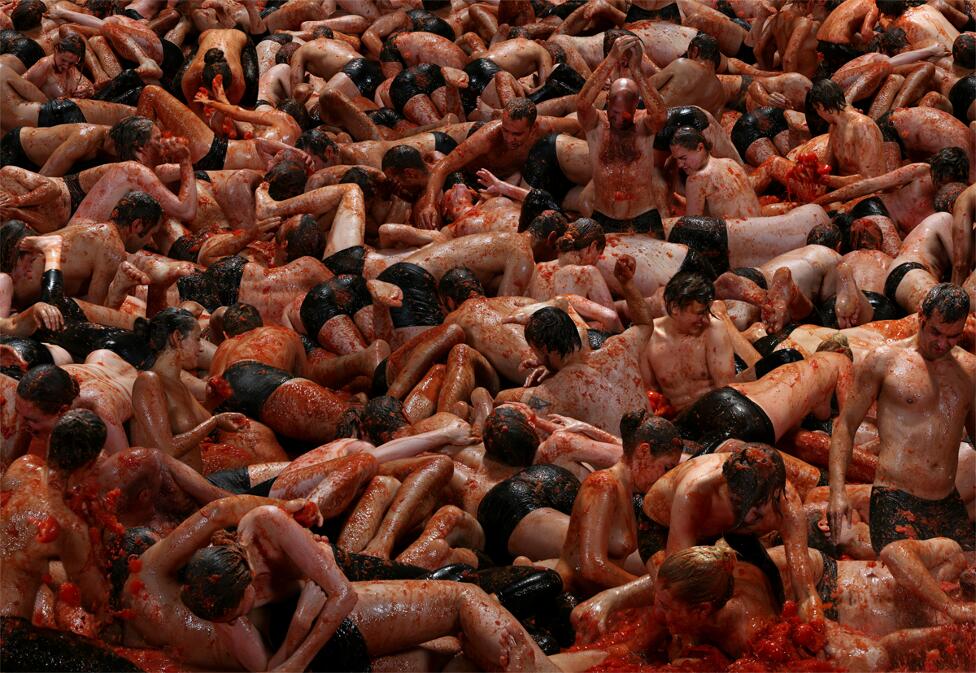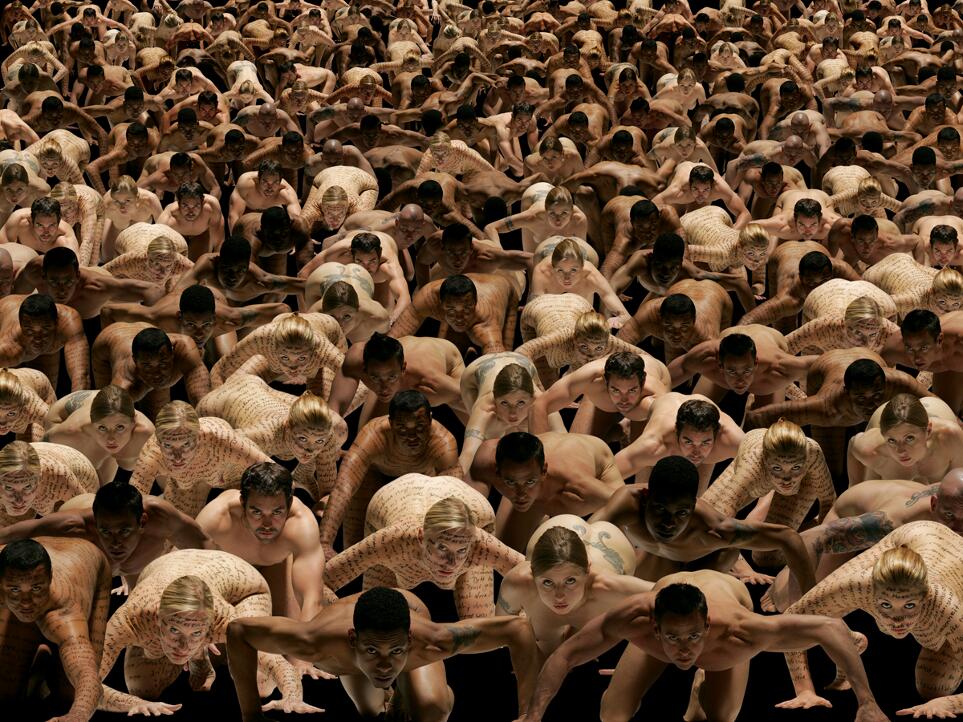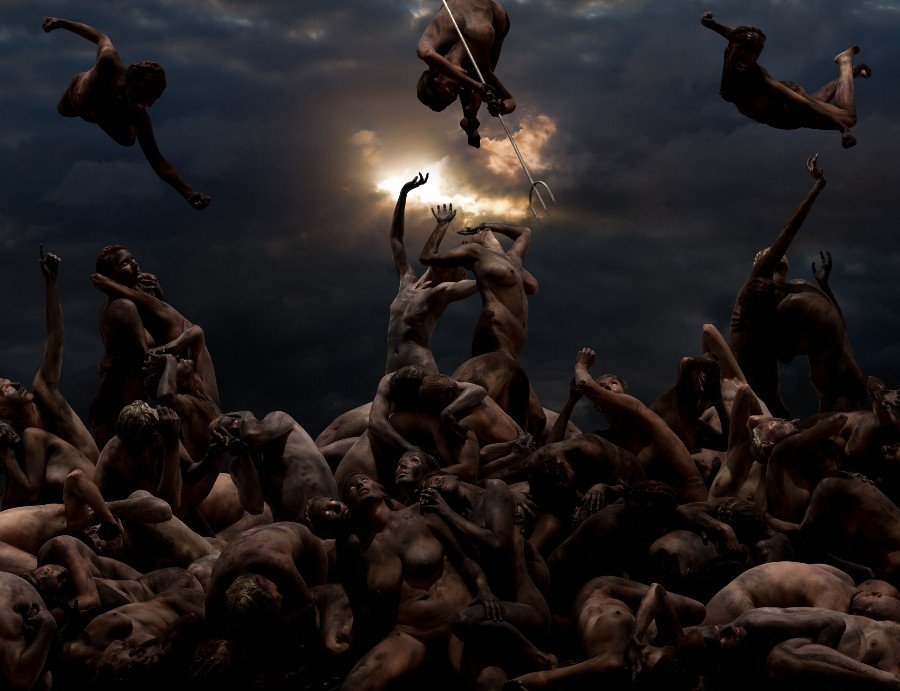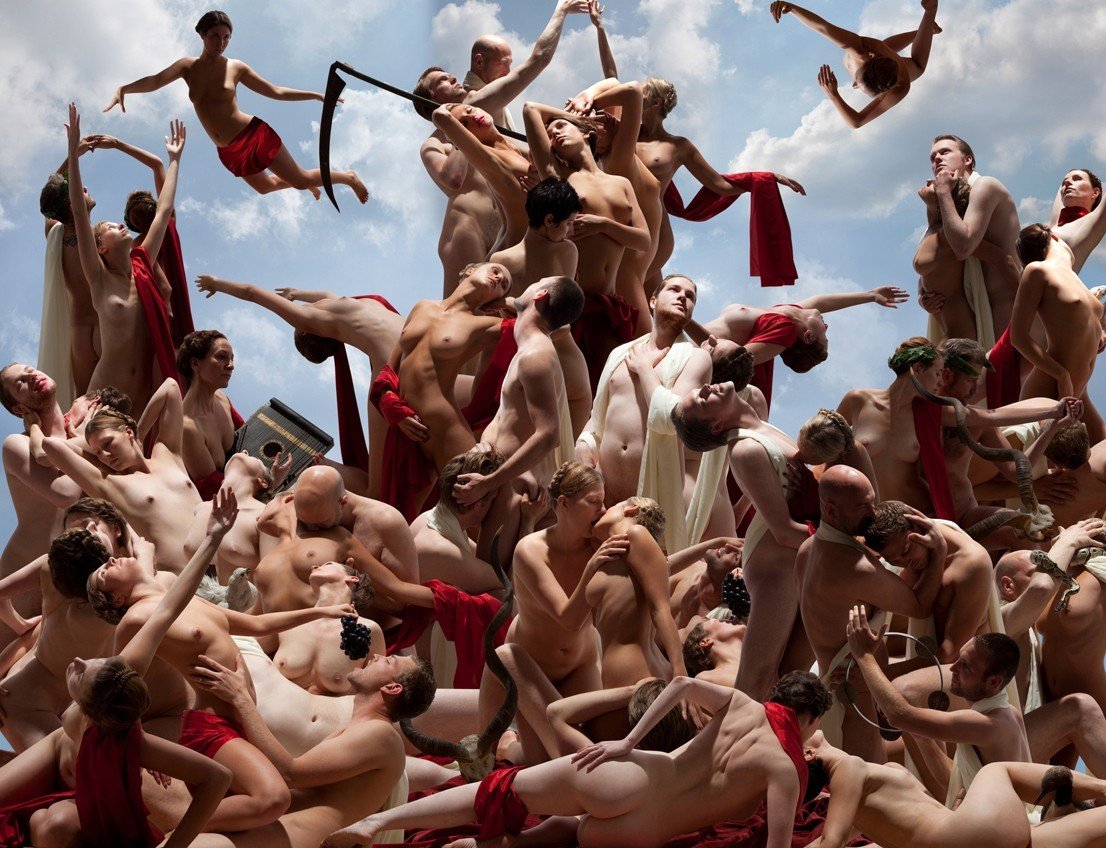Claudia Rogge deviates from her traditional fascination with patterns and the masses in her composition “EverAfter.” The German photographer, famous for her visual studies of the human body’s existence as an individual being as well as a mere object in a collective group, chooses to shift her focus on the dichotomy of heaven and hell as present in the body. Her latest work features bodies in the nude, playing out scenes that evoke Dante’s Divina Commedia. The ambiguity between the celestial and the carnal is what makes the photographs captivating and thought-provoking. In one photograph, punishment falls upon soot-covered beings, yet the deliverers of fate are human as well. Another image of floating figures swathed in white, seemingly lovely, is tainted by bestial entities and acts of sin. The composition of figures in each of the photographs creates three focal points, undoubtedly an allusion to the holy trinity. However, there is no perfect paradise in Rogge’s photographs – though hell has become deceptively heavenly.
via – images – ©Claudia Rogge



